What happens at ITRS, stays at ITRS
- Dina-Leigh Simons
- Jul 11, 2025
- 3 min read
Attending the 14th International Temperate Reefs Symposium (ITRS) as a final-year postgraduate researcher.
I attended the 14th International Temperate Reefs Symposium (ITRS) in July 2025, held in the coastal city of Brest in northern France. With my PhD submission just a few months away, ITRS was the perfect event to round things off.
The week was packed with brilliant science, amazing people from around the world, and more than a few memorable moments – most of which I’ve been sworn to secrecy about, thanks to the unofficial rule: “what happens at ITRS, stays at ITRS”!
Let's just say this symposium is highly anomalous within the academic world, with costumes, custom brewed beer, and questionable cheerleading-themed traditions. As the long-standing attendees described, "ITRS is like a weird family Christmas that you just can't escape".
This year was the biggest group of attendees to date!
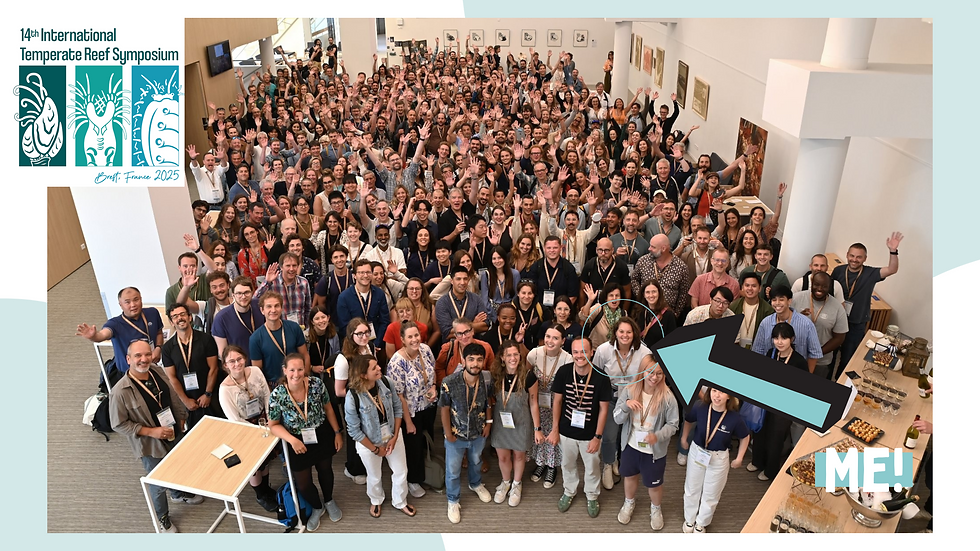
The symposium program was packed with six full days of workshops, talks, social events, and excursions around the Brittany region. I averaged 5 hours of sleep over the week compared to my normal 8 hours!
At the symposium, I gave a 15-minute presentation based on the first data chapter of my PhD, which explores how environmental DNA (eDNA) can be used to characterise intertidal biodiversity at both local and national scales.
My talk covered the methods I used, the key findings, and some practical suggestions for how eDNA could be used for coastal biodiversity monitoring. The presentation was really well received (yay!) and sparked plenty of discussion, especially around the potential of eDNA as a scalable, long-term tool for ecological monitoring and biodiversity assessment.
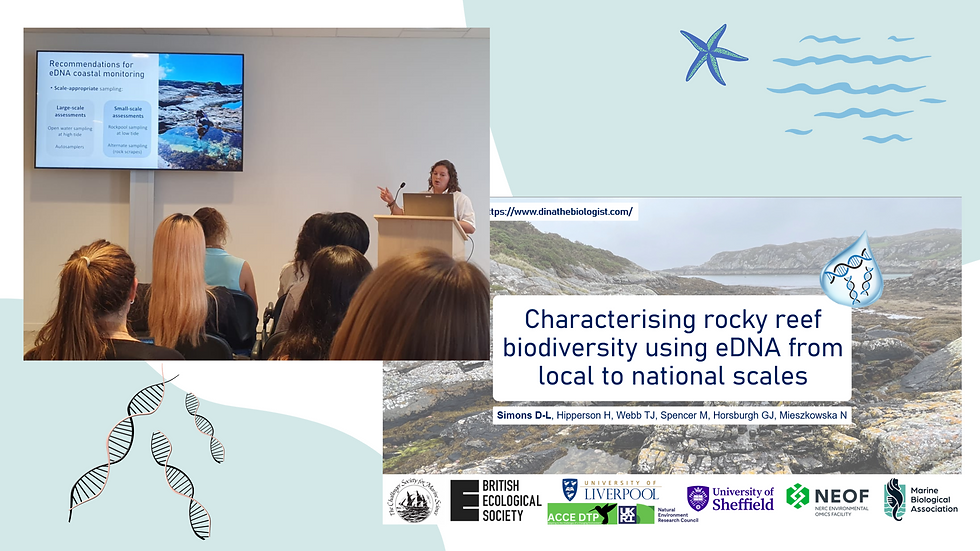
Alongside the main conference program, I took part in a workshop on kelp forest conservation by the Kelp Forest Alliance. The session brought together experts, practitioners, and advocates from around the world, all working on kelp research and restoration. It was a great chance to catch up on the latest developments and get stuck into collaborative discussions on how best to protect and restore these important ecosystems.
Oh, and we got some cute kelp-themed stickers and badges too – always a bonus!
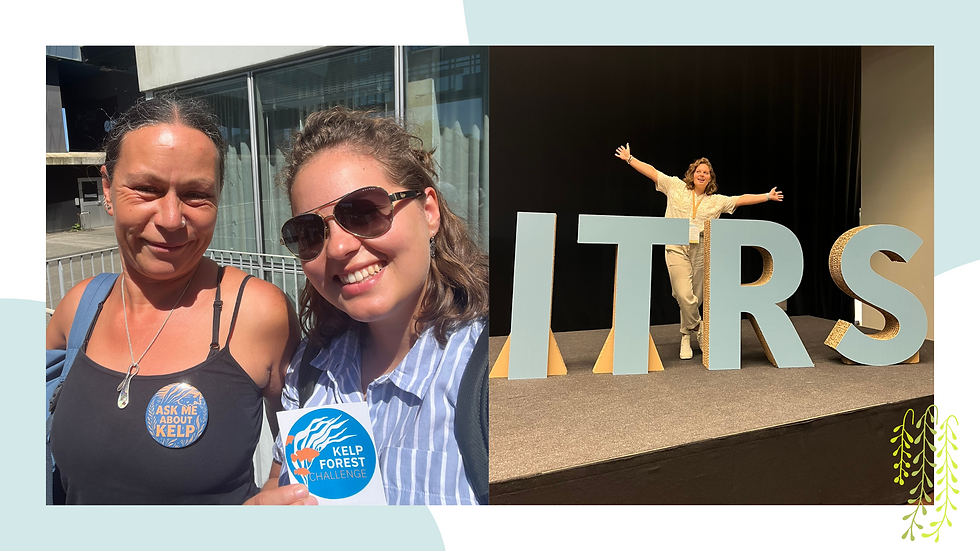
One of the most rewarding aspects of the conference was the networking. I had the chance to connect with many leading researchers in my field, including UK- and Ireland-based academics. I also met several international experts, some of whom have played a substantial role in my career progress!
Dr. Peter A. Todd, Associate Professor at the National University of Singapore, led a fantastic marine biology course during my undergraduate year abroad in 2017/18. This course confirmed my passion for the ocean and paved my whole trajectory into the academic marine world.
Dr. Laura Falkenberg, Lecturer at the University of South Australia, was my supervisor during the Summer Undergraduate Research Programme at the Chinese University of Hong Kong in 2019. Laura supported me in publishing my first paper and was a fantastic role model during my time in Hong Kong (and still is!).
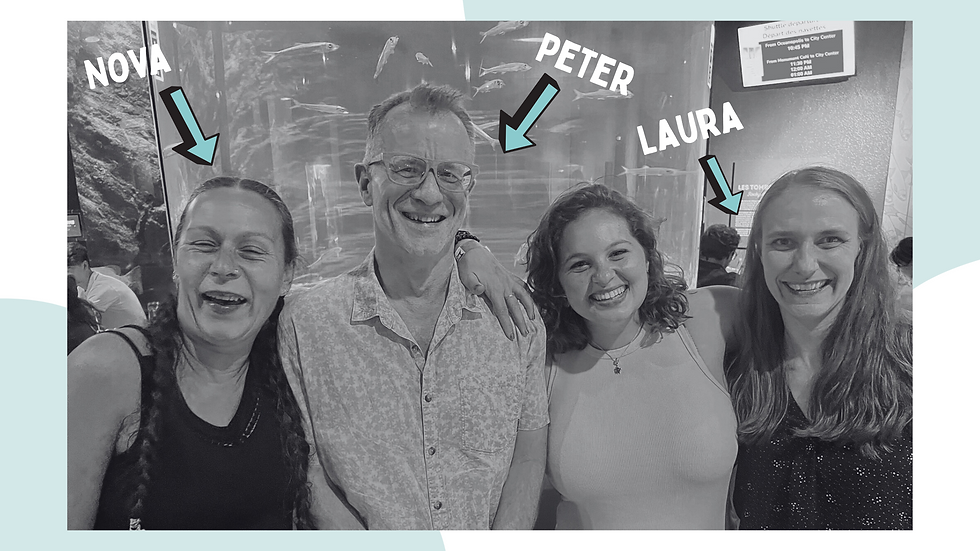
I thoroughly enjoyed the keynote and plenary talks throughout the conference, particularly those by Professor Gray A. Williams, Professor Brian Helmuth (who is involved in the development of a real-life Subnautica-like station called Proteus!), and Professor Christopher McQuaid.
Equally valuable were the connections I made with fellow PhD students and early-career researchers from across the globe. It was both fun and professionally rewarding to swap ideas, share challenges, and chat about our research (not to mention getting involved in the post-gala dinner antics!).
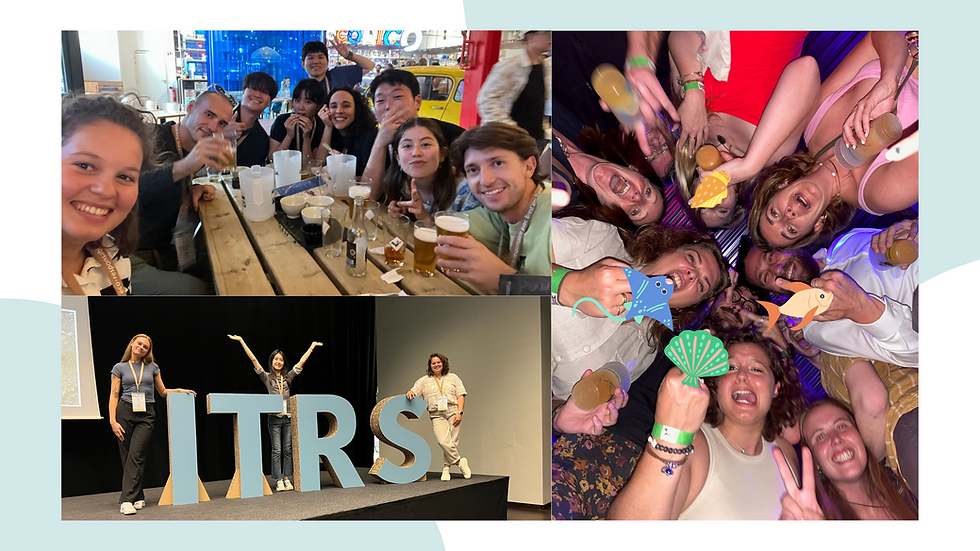
I ended the week (quite hungover, may I add) with a visit to the town of Roscoff and the Roscoff Biological Station founded in 1872. Desperately wishing we had facilities like theirs, because they were so well-organised and extensive.

Overall, attending this symposium has been a major milestone in my academic journey—truly one of the best weeks of my PhD so far! It has boosted my visibility as a researcher, strengthened my confidence in presenting and discussing my work, and deepened my engagement with the international scientific community. I think I've made colleagues and friends for life.

Many thanks to the Challenger Society and the British Ecological Society for the generous financial support which covered the costs of attending this symposium. I’m super grateful!










Shhhhhh, don't give away all the fun shenanigans that happen at ITRS!! Best conference(s) I've ever been to, for research excellence and amazing scientists who become brilliant collaborators and lifelong friends. Also, your talk was fantastic, as evidenced by the size of the audience!